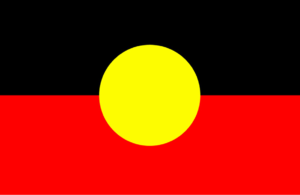Roles available: Lead Groups for The ALIVE Lived-Experience Research Collective
Interested in our initiative? Submit your email to receive an invite to the alive collective.
Menu
Interested in our initiative? Submit your email to receive an invite to the alive collective.
Roles available: Lead Groups for The ALIVE Lived-Experience Research Collective
The ALIVE National Centre for Mental Health Research Translation to implement Mental Health Care at Scale in primary care and community settings is seeking expressions of interest (EOI) for one Co-Chair and three General Members with experience of living with mental ill-health for the Lived-Experience Research Collective.
PURPOSE:
The Lived-Experience Research Collective leads the agenda to strengthen lived-experience approaches and models of research within the fabric of The ALIVE National Centre and its translational goals. There is a lived-experience (people who live with mental ill-health) lead group and a lead group for carers, family and kinship researchers.
Lead groups support strengthening lived-experience research and ensure that a tailored program for research capabilities development is provided for lived-experience researchers (and including family, carer and kinship group researchers) across disciplines engaged in mental health research, implementation and translation, and for researchers based in community, government and non-government organisations. The lead groups assist to embed lived-experience at all levels of the Centre, including in the research governance and management and foster lived-experience led research models and studies in implementation and translation mental health related research.
ROLES:
One Lived-Experience Lead Co-Chair
Three Lived-Experience Lead Group Members – one currently undertaking a PhD, an early career and mid-career representative.
KEY DATES:
Call Opens – 22nd June 2022
Closing Date – 18th July (5pm AEST)
Interviews Week – 1-5th August 2022
ABOUT THE ALIVE NATIONAL CENTRE
The ALIVE National Centre marks a new era in mental health care in Australia and is funded for five years (2021-2026) under a National Health and Medical Research Council (NHMRC) Special Initiative in Mental Health. The initiative seeks to (per the NHMRC guideline document):
1) improve experience of care through more effective and innovative models of care and health system redesign;
2) reduce early mortality through evidence-based strategies for addressing physical, behavioural, psychological and other determinants;
3) foster innovative, multidisciplinary approaches to mental health by bringing together a diverse range of stakeholders with Lived-Experience and professional expertise to define the issues, provide evidence for solutions, deliver improved health outcomes and outlooks for people living with mental illness; and
4) engage and develop the next generation of mental health research leaders.
The Centre’s vision is to form vibrant communities that support mental health and promote well-being to enable people to thrive. This will be done through primary care and community action focusing on mental health care at scale, prevention across the life-course, longer healthier lives in priority populations and by being lived-experience informed.
An Executive Research Leadership Committee (ERLC) meets monthly to oversee Centre research activities and operations, this is co-chaired by the Centre Director Victoria Palmer and Lived-Experience research lead Michelle Banfield.
Members of the ALIVE Lived-Experience Research Lead Group are invited to attend the Centre’s research program and network meetings that happen every 6-weeks and will engage with the lead group and Lived-Experience research lead for a broader mentoring and co-reflection discussion.
PURPOSE OF THE TWO RESEARCH LEAD GROUPS
The ALIVE Lived-Experience Research Collective has a Lived-Experience Research Lead Group (focus on individuals with direct experience of ongoing distress and mental ill-health) and a Carer/Family/Kinship Research Lead Group. These lead groups will assist in development of the collective’s research agendas, identification of lived-experience researcher needs, training programs and activities (alongside member input) and identification and scoping of existing models and approaches that inform lived-experience research in Australia. This includes supporting the embedding of lived-experience research models within the Centre’s fabric.
ROLE OF THE CO-CHAIRS
Across each committee and board of The ALIVE National Centre, the role of the Co-Chairs is to ensure that meetings are effectively coordinated, that they keep to time, that all agenda items are discussed, that decisions are discussed fairly and equitably throughout meetings, and that all members have had the opportunity to share views and be heard. Co-Chairs support the lead group members to achieve the meeting goals. They are familiar with processes and functions of the relevant committee, and intersection with wider Centre governance and activities. Co-Chairs may need to meet between meetings to review agendas and ensure the actions from previous meetings have been completed. This will require liaising with the Centre HUB. Minutes for meetings will be taken by the Centre HUB. Sometimes a smaller working group may need to form according to needs.
A NOTE ON THE NUMBERS OF CO-CHAIRS
The rationale for the appointment of two people with Lived-Experience of mental ill-health, and two carers/family/kinship group of someone living with mental ill-health in each lead group ensure that at least one Chair with lived-experience is at the lead group meeting.
TERMS OF REFERENCE
Co-Chairs will be provided with the Terms of Reference (TORs) specific to the lead group ahead of meetings. This will include further details of the planned reports to and from Committees, and time spent setting out values and principles of the lead group and their operations.
TIME COMMITMENTS
The lead group members for the Lived-Experience Research Collective attend two research program meetings (6 weeks apart – this may be individually, in pairs or more depending on research interests and program links). Lead groups members then meet with co-chairs and the lived-experience research lead for 2 hours for reflection, mentoring and co-reflection discussion. Zoom or other video conferencing will be used for all meetings given the national nature of the centre. Meeting papers and agenda items will be available and accessible through CloudStor, a secure cloud storage for sharing and working with research data online to enable communication between lead group members and back to the Centre and its leadership groups.
REMUNERATION
Co-chairs will be paid in accordance with the Australian Government Remuneration Tribunal Determination for holders of part-time public office, https://www.remtribunal.gov.au/document-library-search/remuneration-tribunal-remuneration-and-allowances-holders-part-time-public-office-determination-2021-compilation-no-5. For Committee, Board or Lead Group members this is currently $83.60 per hour or $418.00 per day (or more than five hours). For Committee, Board or Lead Group Co-Chairs this is currently $111.20 or $556.00 per day (or more than five hours). We note that as a University administered Centre this may require appointment and submission of invoices by co-chairs and members to facilitate payment.
SELECTION CRITERIA
All candidates will have had prior experience working within research-oriented settings, and committees or research advisory groups with working knowledge of board structures in mental health services, policy, research and/or government settings. There may be similar expertise or matching of some applicants who are newer to lead roles and serving on boards. General members will ideally have already joined the lived-experience research collective. See here to apply if not already a member: https://livedexperience.alivenetwork.com.au.
LIVED-EXPERIENCE RESEARCH COLLECTIVE CO-CHAIR
The ALIVE Lived-Experience Research Lead Group Co-Chair Role: Ensures the development and ongoing management of the Centre is driven by Lived-Experience leaders, academics and researchers. Ensures Lived-Experience involvement is embedded across all levels and aspects of the Centre, including governance and management. Membership to the Lead Group: given the research focus of the Collective, membership will reflect the research continuum of PhD, early and mid-career researchers. There may be mid-career researchers working on a government project or within a community organisation with research expertise and backgrounds who are encouraged to apply also for general member positions.
SELECTION CRITERIA
Please write a paragraph response only to each of these selection criteria:
• Prior experience or interest in mental health research, especially knowledge of different research methods used in undertaking research across different settings and paradigms
• Prior experience with other research advisory groups, research committees and/or research governance (large scale initiatives or national committees desirable)
• Demonstrated commitment to respectful interaction with a range of stakeholders, including others with different Lived-Experience perspectives, researchers engaged in mental health research, clinicians, policy makers, and stakeholders within services
• Demonstrated shared agreement with the values of the ALIVE National Centre and its research programs and agendas (values can be found here: http://13.238.155.166/)
• Ability and willingness to engage in robust discussions and work together to develop shared understandings that progress and advance the Lived-Experience agenda
• Availability for regular meetings and out-of-session work as required and stipulated in advance depending on availability.
APPLICATION PROCESS
Please address the selection criteria and in one document, please submit your cover letter, responses to the selection criteria and your brief resume/CV.
Please submit your application via the link below:
https://melbourneuni.au1.qualtrics.com/jfe/form/SV_eJAAiqMjLeV2ZxQ
The ALIVE Mental Health Research Virtual Café Translation Conversations #5
Read moreRoles available: Lead Groups for The ALIVE Lived-Experience Research Collective
Read moreTo people with complex mental health needs and on waiting lists for services
Read moreFind out more about the noticeboard feature and how to contribute
Read moreThe ALIVE National Centre’s writer-in-residence program has launched
Read moreThe ALIVE Mental Health Research Virtual Café Translation Conversations #4
Read moreImproving Recovery, Capacity Building and Wellbeing – 20-21 February 2023 at International Convention Centre Sydney
Read morePresentation by Dr Michelle Kehoe and Dr Rick Whitehead at Child & Adolescent Mental Health Conference
Lived-experience researchers from a range of backgrounds joined forces to present a Lived-Experience event at La Trobe University
Read moreIn 2022 we are starting our virtual café series where we will have monthly presentations.
Read moreThis Special Issue will focus attention on the challenges across these sub-sectors and identify appropriate evidence-based leadership practices
Read moreThe NMHC have launched the National Lived Experience (Peer) Workforce Development Guidelines on Wednesday 1 December 2021
Read moreEditorial perspective on principles and recommendations for working with children and parents living with parental mental illness
Read moreThe ALIVE Centre is building on our co-design work with Carers Victoria with a new impact evaluation project
Read moreThe roadmap is a guide for the Centre on ‘Where are we now?’ ‘Where do we want to go?’ and,’How will we get there?’ in mental health research translation in the primary care and community settings.
Read moreThe ALIVE National Centre is funded by the NHMRC Special Initiative in Mental Health.
We acknowledge the Traditional Custodians of Country throughout Australia and recognise their continuing connection to land, waters and sky. We pay our respects to their Elders past, present and emerging. We are committed to working together to address the health inequalities within our Aboriginal and Torres Strait Islander communities. The Uluru Statement from the Heart is a fundamental driver of our research, education program, and commitment to equity and access.
This map attempts to represent the language, social or nation groups of Aboriginal Australia. It shows only the general locations of larger groupings of people which may include clans, dialects or individual languages in a group. It used published resources from the eighteenth century-1994 and is not intended to be exact, nor the boundaries fixed. It is not suitable for native title or other land claims. David R Horton (creator), © AIATSIS, 1996. No reproduction without permission. To purchase a print version visit: https://shop.aiatsis.gov.au/



The ALIVE National Centre for Mental Health Research Translation is funded by the National Health and Medical Research Council (NHMRC) Special Initiative in Mental Health Grant APP2002047.
ALIVE Next Generation Researcher Network Application Form Click here
For University based research higher degree students, early/mid-career mental health researchers
ALIVE Lived Experience Research Collective Application Form Click here
For University and community based lived-experience or carer-focused mental health researchers at all career stages
ALIVE Collective Application Form Click here
For any individuals or organisations with a general interest in supporting the special initiative in mental health
ALIVE Implementation and Translation Network (ITN) Application Form Click here
For sector, service delivery organisations in mental health serving people across the life course and priority populations
If you have a general enquiry about The Alive National Centre for Mental Health Research Translation, please submit an enquiry below
Not a member of the ALIVE National Centre? Register now